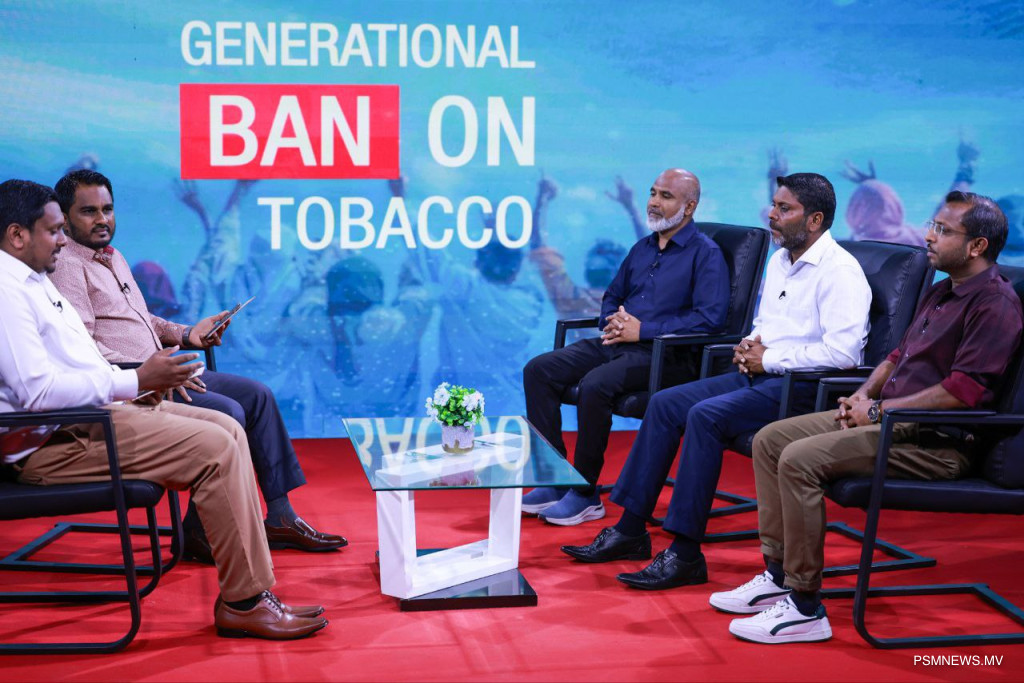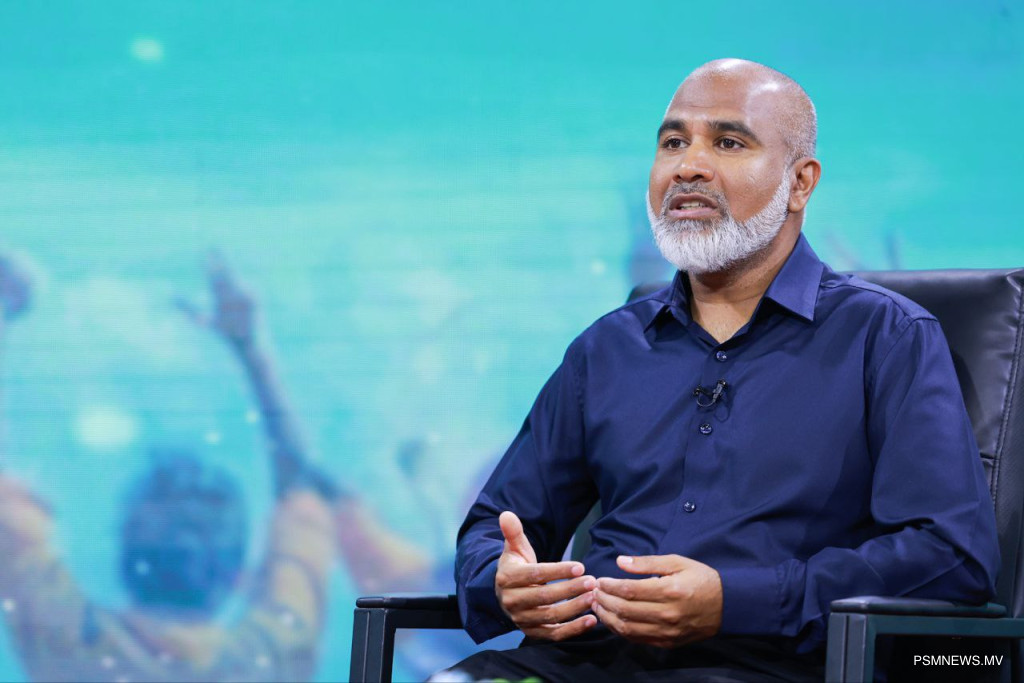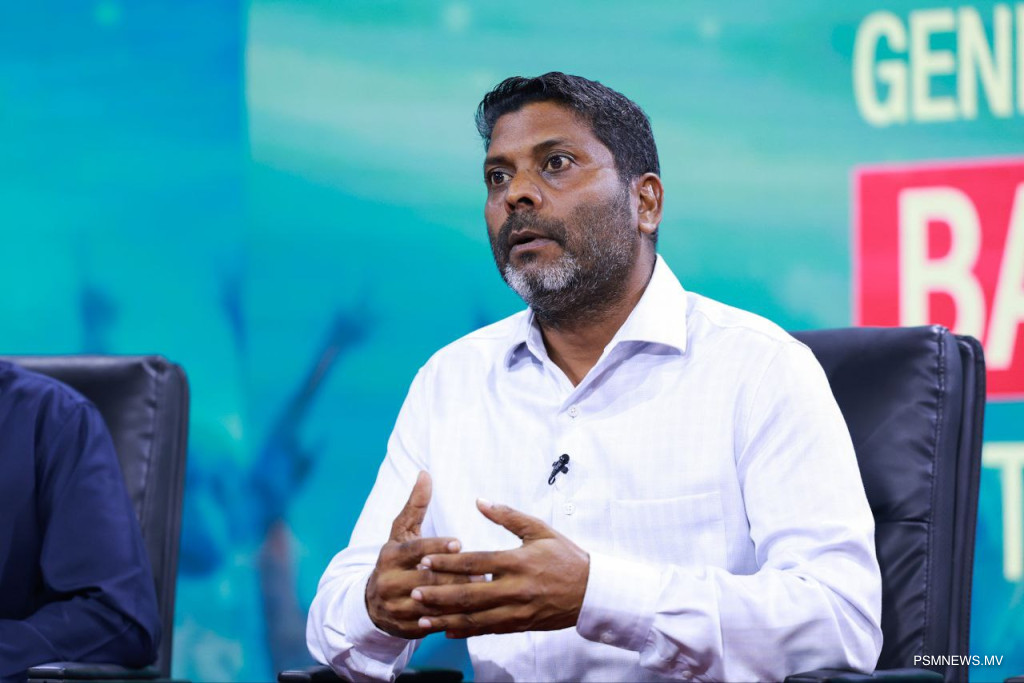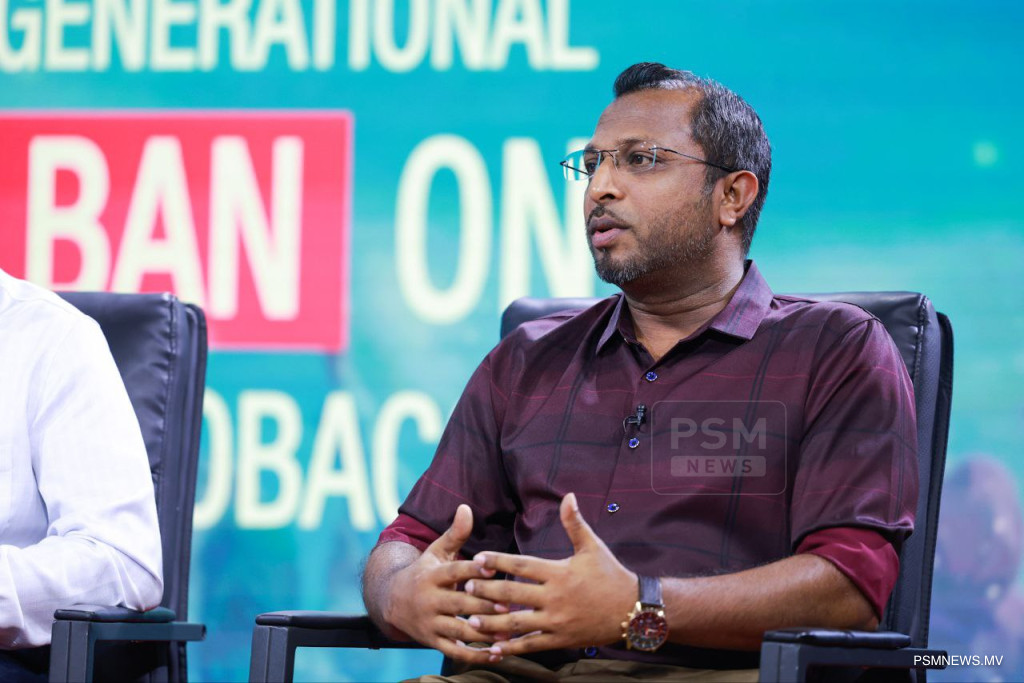
A 32-hour national telethon has concluded in the Maldives, marking the launch of a landmark generational tobacco ban aimed at creating one of the world’s first tobacco-free populations. Organised by the Public Service Media in partnership with local media outlets, the campaign ran continuously from 3:45 p.m. on 31 October until 11:59 p.m. on 1 November, drawing nationwide participation and support.
The broadcast featured interviews with health professionals, religious scholars, and community leaders, alongside testimonials from students, parents, and young people. Designed as a comprehensive public advocacy effort, the telethon sought to raise awareness of the new legislation and galvanise public commitment to its long-term goals.
The generational ban, which took effect on 1 November, prohibits the sale and use of tobacco products by individuals born on or after 1 January 2007. Codified through an amendment to the Tobacco Control Act, the measure criminalises both consumption and commercial access for those born after the cutoff date.
Public mobilisation extended beyond the broadcast. A nationwide run concluded at 4 p.m. on 1 November, drawing 8,959 participants across 65 islands. The event was supported by more than 110 clubs, associations, and community groups, as well as 216 schools. Additional activities included a cessation clinic for current tobacco users, an advocacy stall, live musical performances, and a photo booth.


The telethon also incorporated video submissions from 188 islands and featured contributions from more than 150 individuals, reflecting the scale and reach of the campaign.
Minister of Education Dr Ismail Shafeeu, who participated in the event, cited early signs of success in reducing vaping incidents in schools across the capital region. “Previously, 50 or 60 vape sticks might be found daily in schools in the Malé area,” Dr Shafeeu said. “However, the frequency has diminished so significantly that now only one or two are found over the course of a week. This is a very significant achievement.”
Minister of Sports, Fitness and Recreation Abdulla Rafiu also addressed the campaign, linking the tobacco ban to broader national goals in public health and athletic development. He noted that the prohibition on vaping had already yielded observable benefits among young athletes. “Children’s performance will improve,” Mr Rafiu said. “The effects [of the vaping ban] are already visible through the athletes, and this fact is being highlighted by all parties.”
PSM chief says media must help public understand impact of tobacco ban
The Managing Director of Public Service Media (PSM), Ibrahim Nasreen, pledged sustained media engagement to support the generational tobacco ban, describing the initiative as a national priority requiring broad public understanding and long-term commitment.
Appearing as a guest on the telethon, Nasreen underscored the critical role of media in educating the public about the benefits of the ‘Generational Ban on Tobacco’ initiative. He affirmed PSM’s commitment to ensuring that the policy’s legal implementation is translated into lasting public awareness.

PSM’s approach has centred on collaboration with various media outlets to simplify and communicate the policy’s objectives. According to Nasreen, the campaign was designed to highlight the importance of the ban, explain its advantages from multiple perspectives, and engage the public in meaningful dialogue.
To deliver this effort at scale, PSM established coordination with key government ministries, including health, education, and sports, and launched a series of programmes aimed at diverse audiences. Nasreen noted that the strategy extends beyond conventional broadcasting, seeking to include individuals from all walks of life and foster participation across generations.
He also pointed to PSM’s longstanding role in tobacco-related public awareness campaigns, describing the organisation as a consistent leader in efforts to inform the public across different eras.
Following President Dr Mohamed Muizzu’s enactment of the generational ban, Nasreen assured that PSM will continue to utilise all available media platforms to reinforce the initiative and communicate its significance. He expressed confidence that this work will be sustained well into the future.
A central theme of Nasreen’s remarks was the need for measurable impact. “It is both my hope and my appeal that we, as media outlets, conduct assessments to determine the impact of the implementation of this ban or law on the current generation, specifically, evaluating the changes observed in the physical well-being of athletes, the changes among students, and the extent to which the number of children who graduate from school and subsequently fall into the scourge of cigarette addiction has been reduced, and how that reduction was achieved,” Nasreen said.
He continued, “We must ascertain the magnitude of the impact this policy has had on the Maldives. The media’s role is to simplify this analysis and present it clearly to the public. PSM is committed to undertaking this responsibility.”
